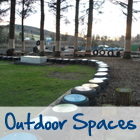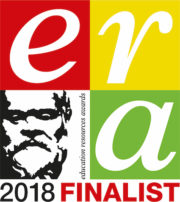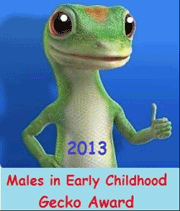“When we walk to the edge of all the light we have, and we take the step into the darkness of the unknown, we must believe that one of two things will happen. There will be something solid for us to stand on, or we will be taught how to fly.”
Patrick Overton
I often get asked for advice about going freelance and undertaking outdoor learning consultancy work. The aim of this post is to answer some basic queries about taking the plunge.
Why go freelance?
It’s helpful to be absolutely sure that this is the direction you wish to take. It is perfectly possible to be part time freelance and work in a regular job. This is usually the safest route as income is fickle.
The hours are very long. The pay can vary especially until you are successfully up and running. There are administrative tasks and all sorts of hidden costs and time consuming tasks. For example, completing the tax returns and having public liability insurance and professional indemnity insurance. You do not get paid for holidays nor receive a pension unless you can afford to set one up. You have to utterly love and believe in the work you are doing and be prepared to graft. For the last 9 years that I worked, I was able have an admin assistant for one day per week which helped enormously.

The job satisfaction is extremely high because positive change was the result of the work I did. As I was not a line manager nor a school inspector, I worked with practitioners in different ways and enable them to reflect and adjust their practice from a different perspective. Every educator has the skills and abilities to facilitate quality learning and play outdoors based upon their indoor experiences of working with children. I had the same number of stressful incidents and situations in one year that I would face in one day as a head teacher.

What skills and experience do you need to become a freelance consultant?
This depends very much on the nature of the work you wish to undertake. For example, if you work with mainstream education establishments, then you must know and understand how this sector works. You have to be able to offer a unique service that the education sector needs and wants. You should have confidence in your abilities to do a great job.
I became a freelance education consultant because it was the only way I could do the work I wanted to do. At the time, there were no outdoor learning advisory posts in Scotland. I wanted to provide support, training, advice and resources to enable practitioners to get children outside as a natural part of effective learning and playing. I want to help people rethink learning outdoors as a valid and helpful contribution to meeting children’s needs. As a former head teacher with lots of outdoor learning experience I felt I had a unique contribution to make. I understood what head teachers needed and how to provide support – and when necessary – challenge. There’s always been so many myths around outdoor learning and play. Not everyone has had the time to consider their own perspectives and understanding.
Are there other options instead of freelance work?
Yes. I know people who have set up charities and education trusts. This may mean applying for funding and grants which is time consuming. However, it does mean that your organisation is likely to last. Freelancers come and go much quicker, as a general rule of thumb. Do remember that even charities have to make a profit to exist and are accountable for their work and finances.
How do you get started?
In the UK, all it takes is to fill in the tax form and post it off! It’s very simple. Setting up a company is more complex. Establishing a trust or charity involves additional work. Every country has agencies which help businesses start up. In the UK, it is Business Gateway. They provide advice, courses and support.

How did I get work?
Mostly through word of mouth. Some freelancers approach local schools, parent groups, etc. and make them aware of their services. National agencies and charities sometimes need specific work undertaken. When this happens they issue tender documents. I would bid for this work. In Scotland, much of this is through Public Contracts Scotland. Also local organisations sometimes need teachers and educators to write materials or do specific work. So ask around! For one-off training or consultancy work, usually schools or clusters or other organisations would contact me directly.

Did I employ people?
No. As a former head teacher, I knew the complexities and responsibilities of employing others. I subcontracted work occasionally, especially in the early days. At my height of doing this, I had 2 educators and my admin assistant working alongside me on different projects. However in later years I simply signposted queries that I was unable to undertake to other consultants or organisations. Sometimes big projects come up with tight timescales that require more than one person to complete effectively. When this happens I work with other freelance consultants. Shared work is more complex and time consuming but more satisfying – I liked teamwork.
Did I have student placements?
Yes. Local students would work alongside and shadow me on a part-time and occasional basis. This was usually done on mutually suitable terms. They helped with simple administrative tasks and acted as gofers when I delivered courses. I looked for students with a positive, reliable, hard-working, go-for-it attitude. It didn’t not matter to me which subject a student was studying. In the long-term I wanted people who would be ambassadors for getting children outdoors, regardless of which profession they ended up working in.

How did I know what to charge?
This is tricky. Contract work normally has a fixed price over which you cannot bid. I learned through trial and error, mostly through undercharging and then regretting it! I would get a heavy feeling in the pit of my stomach that I had undersold my services. I remained the breadwinner in my family throughout most of my working life. Please see this blog post for more details.
Further information?
This is only a brief outline. I loved the freedom, flexibility, challenge and creativity that freelance work involved. I hope I will write more blog posts in due course about the freelance/business side of what I did.
“For once you have tasted flight, you will walk with your eyes turned skyward. For there you have been, and there you long to return.”
Leonardo da Vinci
This blog post was originally published in January 2012. Many thanks to all schools, organisations, charities, Governments, local authorities, consultancy firms, and many more for believing in me and hiring me for a few hours or over many days. You all made me think… and I learned so much which I hope I have given back or passed on to others in the education, environmental and play sectors.



















